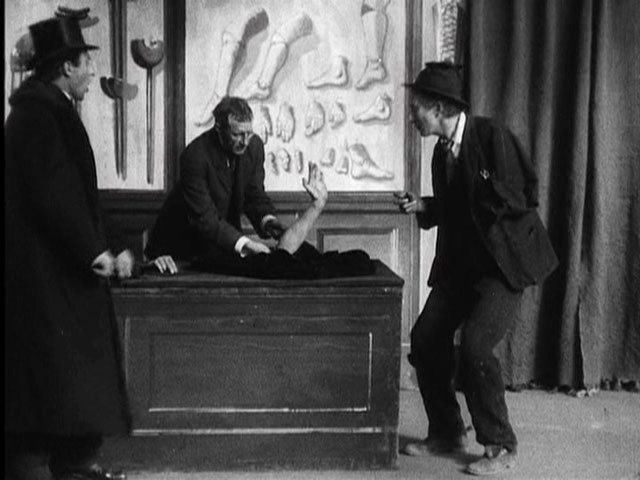February 20, 1910 [A Trip To Mars]
To get to the Moon, H.G. Wells invented cavorite, which ignores the imploration of Aristotelian physics—that everything must try to get to the center of the Earth—and instead flies up and up, all the way to weightless comfort and Selenite peril.
 The ecstatic inventor in A Trip to Mars has the same stuff, and topsy-turvey's himself all the way to the Venice of the stars—what with the canals and all—his little legs kicking like a baby wanting out of his crib; and he lands upside-down and becomes Schneewittchen fleeing through a menacing forest on Mars—the trees alive, thick and unbending, grasping with fingered branches; and he tiptoes on the lips of a giant Martian, who plays Gulliver and holds the little man in the palm of his hand and blows cold Martian breath on him until he has a snowball—and I was hoping he'd throw it, but the fee-fi-foh-fum Martian melts it and blows the man back to Earth.
The ecstatic inventor in A Trip to Mars has the same stuff, and topsy-turvey's himself all the way to the Venice of the stars—what with the canals and all—his little legs kicking like a baby wanting out of his crib; and he lands upside-down and becomes Schneewittchen fleeing through a menacing forest on Mars—the trees alive, thick and unbending, grasping with fingered branches; and he tiptoes on the lips of a giant Martian, who plays Gulliver and holds the little man in the palm of his hand and blows cold Martian breath on him until he has a snowball—and I was hoping he'd throw it, but the fee-fi-foh-fum Martian melts it and blows the man back to Earth.When Cyrano de Bergerac wanted to send someone out of space, he had the fellow fill bottles with dew and tie them to himself and up they rose with the dawn. A pretty poem, that. But here we see the other side of the fairy-tale, in which the hero is sent tumbling like an Autumn leaf in a dream only a rarebit fiend could love.


Comments
Post a Comment